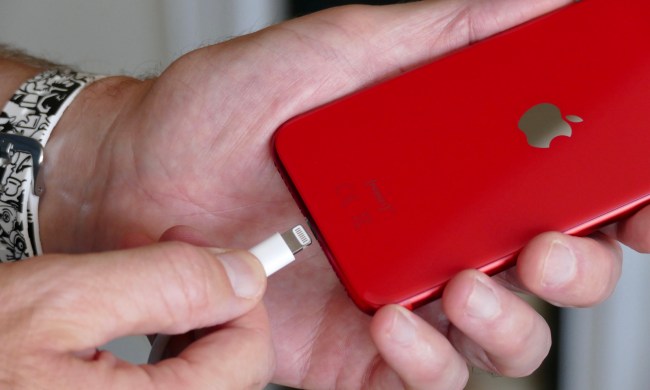Like all technology, the world of wireless speakers is aggregate, constantly evolving as each innovation spawns a new direction for others to improve upon. The process is refined and simplified until we have brilliant solutions like Sonos’ multi-room speakers, or high-performance Bluetooth speakers you can take anywhere. A new product on Indiegogo is taking that idea to 11, bundling everything from multi-room sound, to wireless surround sound and more to create, perhaps, the most versatile speaker system we’ve seen yet. Meet Kien, the modular, total home sound solution.
The makers of Kien have obviously done their homework when it comes to the world of wireless speakers. The system is modeled around the sound bar paradigm, with the addition of Wi-Fi connection, not unlike the Sonos Playbar. But that’s really just scratching the surface of all that Kien can do.
As a modular system, users are free to buy any one of the system’s components, which includes a small disk-shaped speaker the company calls the “Sat,” along with a larger central “Sub” component that serves as a subwoofer/center channel, as well as the hub for the system. As such, the Sub offers multiple hardwired inputs, including an analog RCA input, an Optical digital input, and HDMI input and output, allowing for syncing of audio and video from a source device to the Sub, and its Sats.
Equipped with a power source, the Sub also acts as a charger for the Sat devices, which can attach to the sides for charging as a single sound source, or break away to spread out the sound stage. The breakaway design allows users to use Kien in almost any configuration, including 2.1 stereo sound, and 5.1 surround sound. But it also allows users to go much further — literally.
Want to take a Sat solo in another room? No problem, the speaker has its own volume and power controls, and can also be controlled independently over Wi-Fi and with the centralized app, allowing you to play your own tunes elsewhere without rocking the boat in the living room.
Feel like hitting the road with your Sat? You can do that too, thanks to Bluetooth streaming from your smartphone or other device, with a claimed 12 hours of battery life. And since the system is modular, you can buy as many or as few pieces to build your system as you’d like, and there’s always room to build on. The company claims that Kien will recognize any new speakers you add, and automatically incorporate them into the system. The system is even compatible with Apple’s Airplay.
In addition, Kien adds other novel features, including a location system that adapts to your smartphone’s location to create a “Dynamic Sweet Spot” from all speakers wherever you are in the room. There’s also a feature called User Tracked Audio that can wake-up a speaker in another room to automatically play music from your source device when you enter. Those features can also be disengaged if they aren’t your style, or if you don’t want the sound to be tailored to just one person in the room.
One thing we don’t know, of course, is how the system will actually sound. Each Sat component packs a 30 watt Class D amplifier that pushes dual 2-inch drivers and a single 1-inch tweeter, which seems like a healthy amount of firepower on paper. The Sub component offers dual 6.5-inch woofers powered with a full 150 watts of Class D amplification. That’s a plenty of potency too, though we do have a concern that the speaker may not have the presence or midrange clarity you’d expect from a traditional surround sound setup. Then again, the creators claim they met at Bang & Olufsen, which could be a great sign.
Even so, at $600 for a 2.1 starter system, Kien is priced in line with similarly armed sound bar systems in the market — and few of them (if any) can accomplish all the tricks the Kien system can at that price point. For instance, the Philips Fidelio soundbar has a similar modular design that allows you to break off battery-powered speakers and move them around the room, but it doesn’t offer Wi-Fi or individualized Bluetooth support to take one of the components rogue and listen to whatever you choose, wherever you choose.
Similarly, Sonos’ Playbar can blast sound from wireless and hardwired sources to multiple components, but it doesn’t offer Bluetooth, either, and each speaker must be plugged in, meaning you can’t take your Sat with you when you go.
Further, Kien’s modular design allows you to buy into just a single Sat to start with (which will come with its own charging stand) if you don’t want to go all in. Pricing on Indiegogo starts at $149 for an Early Bird Sat (still available at time of publication) along with an extra $30 for the charger. A single sub costs $299, while $599 gets you the aforementioned 2.1 system, and $899 secures the 5.1 system. Users can also become a “Beta Tester” for the system for $1,999, or you can meet the team for a fancy dinner and get a limited edition 5.1 system for a full $4,999.
The Kien system comes in a variety of 5 different colors, though three more colors will likely soon be available as the system was just a few thousand bucks short of its $100,000 stretch goal at time of publication, with 18 days left. Other stretch goals include more available inputs at $200,000, and a free Sat power dock with every system at $500,000. Delivery of each Kien system is slated for March, 2016.
With so much versatility, and an answer to just about every scenario, Kien has put together an enticing new way to get your sonic fix. If you’d like to get on the Kien bandwagon, you can do so by pledging at the company’s Indiegogo page today.


